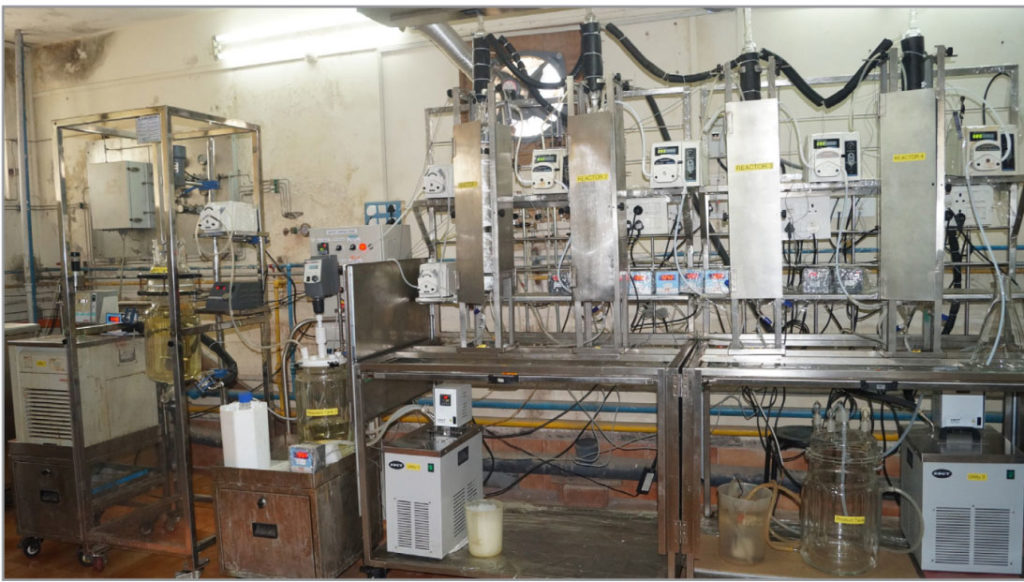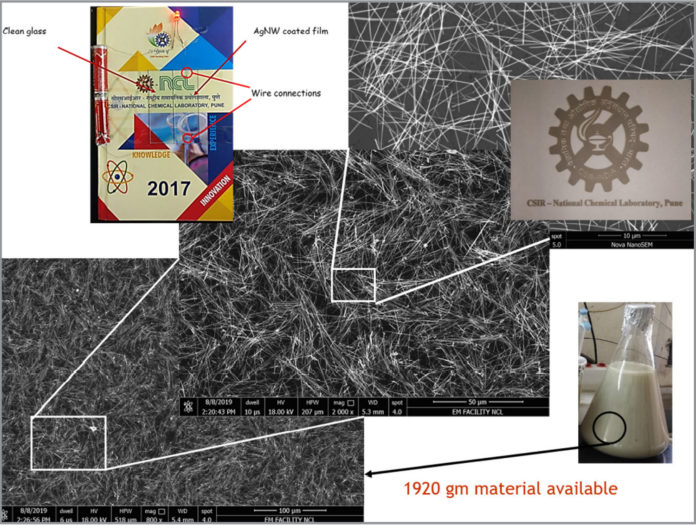Synthesizing nanomaterials like nanowires and nanotubes in large quantities is quite tricky. It is essential to synthesize the materials to get a uniform nanowire diameter range with a variation.
A new process developed by Indian scientists could bring down the costs for large-scale manufacturing of nanomaterials (Silver nanowires). This low-cost synthesis method can produce silver nanowires at the scale of 500 grams per day at the expense of 20$/gm compared to 250$/gm to 400$/gm of the market price.
The process produces silver nanowires with excellent conductivity. This process can also be used to make conducting inks and coatings for display technologies and flexible electronics.
Scientists noted, “This is the first-ever continuous process for synthesizing a functional nanomaterial (Silver nanowires) efficiently with excellent product quality (aspect ratio of nanowires >1000) and at a very low cost (~20$/gm) on a large scale (500 g/day) with a footprint of the pilot plant, not more than six sq. meters. The process is a simple, cost-effective, and scalable synthesis route compared to existing batch manufacturing protocols that even generate many nanoparticles in suspension, which is not easy to separate from nanowires. The developed process has been tested at CSIR-NCL’s characterization facility and is in stage 8 of the Technology Readiness Level.”

Dr. Amol A. Kulkarni leads the research from CSIR-National Chemical Laboratory, Pune.
This technology can make the Indian industries enter into the niche area of electronic chemicals and eventually open up new jobs.
CSIR-NCL has licensed the process technology to Nanorbital Advanced Materials LLP (Ahmedabad) in November 2020 and has signed a material transfer agreement with 3 more industries in 2021. In the future, Dr. Amol is planning to test the developed nanomaterial in different display devices for transparent conducting applications and printing of flexible electronics, including wearable electrodes.
